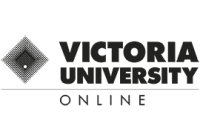You have a wide range of employment choices available to you if you have an MBA and live in Australia. There are many atypical occupations that can provide interesting and fulfilling opportunities, even though standard careers like banking, consulting, and management are unquestionably viable options.
Careers that combine passion and purpose have grown in popularity in recent years. Many MBA grads are increasingly searching for jobs that allow them to change the world rather than following the conventional corporate career route. In a variety of professions, including social impact, entrepreneurship, and the creative industries, one can pursue both personal and professional development and have a significant positive societal influence.
This manual is intended to examine some of these alternate routes and provide information on fields and professions that you might not have previously thought about. This article will give you important information to assist you decide on your future path, whether you're interested in the creative industries, social impact, technology, sports management, or other nontraditional professions.
We will give an overview of the sector or profession in each part, highlight some of the most important jobs and career prospects, and provide information on the abilities and background necessary for success. We will also go through the benefits and drawbacks of choosing a non-traditional career path and provide advice on how to conduct a successful job search.
We hope that by the time you reach the conclusion of this article, you will be more knowledgeable about the unconventional job opportunities open to MBA graduates in Australia and feel more confident to investigate them on your own.
Quick Links To Online MBA Degree Programs
VICTORIA UNIVERSITY
MASTER OF BUSINESS ADMINISTRATION (ONLINE)
- 2 years part-time (minimum)
- 12 units (7 weeks)
- $3,650 per unit, FEE-HELP available
EDITH COWAN UNIVERSITY
MASTER OF BUSINESS ADMINISTRATION (MBA) ONLINE
- 24 months / 18 months (Fast-Track) minimum
- 12 units / 9 units (Fast-Track)
- $54,000 / $40,500 (Fast-Track); FEE-HELP available
University of Technology Sydney
MASTER OF BUSINESS ADMINISTRATION (ONLINE)
- 2 years (minimum), part-time
- 12 subjects | 7-week study blocks
- $4,250 per subject**, FEE-HELP available
JAMES COOK UNIVERSITY
MASTER OF BUSINESS ADMINISTRATION GLOBAL (MBA ONLINE)
- 24 months, Part-time
- 12 Subjects (One subject per each 7-week study period)
- $3,700 per subject, FEE-HELP is available
Definition of Nontraditional Careers
Nontraditional careers refer to roles and industries that are not commonly associated with MBA graduates or the traditional corporate career path.
These careers may involve creative or entrepreneurial pursuits, a focus on social impact or sustainability, or work in emerging fields such as technology or sports management.
Nontraditional careers often require a different skill set and mindset than traditional roles, and may offer unique challenges and opportunities for professional growth and personal fulfillment.
Pursuing a nontraditional career path can be a rewarding way for MBA graduates to use their skills and knowledge to make a difference in the world and achieve their career goals.
Importance of Considering Nontraditional Careers:
For MBA graduates who want to explore a wider range of professional choices and discover employment that correspond with their interests and values, taking atypical careers into consideration is vital. Conventional corporate employment may not offer the same amount of adaptability, creativity, or personal fulfilment as atypical roles and can often be extremely competitive and demanding.
MBA graduates can broaden their minds, learn new skills, and investigate various sectors and businesses by looking into atypical careers. This can result in a more varied professional portfolio and raise their chances of landing jobs that are satisfying and in line with their career goals.
Additionally, embracing atypical jobs can present chances for sustainability and social impact. Several non-traditional career paths concentrate on fields like social entrepreneurship, corporate social responsibility, and nonprofit organisations where people can apply their knowledge and abilities to change the world. This can give a sense of fulfilment and purpose that may not be as easy to come across in conventional corporate employment.
Nontraditional occupations can also be very enterprising and innovative, offering the chance to invent something new and leave a lasting impression on the world. Nontraditional occupations might provide an exciting approach to transform a passion into a career for people with an entrepreneurial spirit or creative vision.
Creative Industries
Advertising and Marketing
All business needs the advertising and marketing sectors, where MBA graduates with a creative streak can find fulfilling positions.
The creation and implementation of marketing and advertising campaigns entail promoting goods, services, or concepts to a specific audience.
With their expertise in project management, financial analysis, and strategic thinking, MBA graduates can bring a special set of skills to these positions.
Working with a range of clients from various industries is one of the benefits of pursuing a career in advertising and marketing.
This can expose students to various company models, marketing tactics, and customer behaviour, which can help MBA graduates build a flexible skill set that can be used in a variety of situations.
Account management, creative direction, media planning, and market research are examples of roles in advertising and marketing.
Account managers are in charge of managing budgets, overseeing the execution of campaigns, and cultivating relationships with clients.
Creative directors manage the creative team and take the lead in developing advertising concepts.
As market researchers acquire and evaluate data to inform marketing strategies, media planners choose the proper media channels for campaigns.
The fast-paced and continuously changing nature of the advertising and marketing profession is one of the difficulties of the job. MBA graduates in these industries must be able to handle many projects and deadlines at once, as well as quickly adjust to shifting trends and consumer preferences.
Understanding and respecting the target audience is a crucial aspect of advertising and marketing. Graduates of MBA programmes in these sectors must have a thorough awareness of customer behaviour, cultural variances, and the social effects of advertising. Also, they must be able to strike a balance between the client's needs and the industry's ethical standards.
Overall, for MBA graduates with a creative flare and a strategic approach, advertising and marketing provide intriguing and dynamic job opportunities. These positions can give you the chance to work with a wide variety of clients and industries and have a real impact on the prosperity of brands and companies.
Entertainment and Media
For MBA graduates who have a passion for the arts and creativity, the entertainment and media industries offer a variety of intriguing job prospects. These sectors cover a wide range of disciplines, including digital media, publishing, music, cinema, and television.
Working on projects that significantly influence popular culture is one of the benefits of choosing a career in entertainment and media. A global audience will be drawn to initiatives that are developed and carried out by MBA graduates in various sectors, from blockbuster films to popular television shows.
Production management, talent management, marketing and distribution, and finance and accounting are just a few of the jobs in the entertainment and media industries. While talent managers help performers and artists advance their careers, production managers are in charge of overseeing a project's day-to-day activities. While finance and accounting experts make sure that projects stay on schedule and within budget, marketing and distribution professionals are in charge of marketing and delivering projects to audiences.
Working in the entertainment and media industry is difficult since it is so competitive and there are so few possibilities available for talented people. MBA graduates in these disciplines must be able to set themselves out from the competition and present a distinctive value proposition.
Understanding and respecting the creative process is another crucial factor in entertainment and media. In these industries, MBA graduates must be able to collaborate with artists and creatives and comprehend the special opportunities and challenges of working in a highly creative setting.
Fashion and Beauty

MBA graduates interested in style, aesthetics, and branding have a variety of fascinating employment options in the fashion and beauty industries. These industries cover a wide range of topics, such as accessories, cosmetics, and beauty items.
The chance to work on projects that have a strong emotional connection with consumers is one of the benefits of choosing a career in fashion and beauty. In these industries, MBA graduates can use their business acumen to plan and carry out projects that appeal to a variety of clients, from high-end luxury brands to mass-market stores.
Brand management, product development, retail management, and supply chain management are examples of roles in the fashion and beauty industries.
The creation and implementation of marketing plans that increase consumer awareness and brand loyalty are the responsibility of brand managers.
Product designers endeavour to design and market new goods that satisfy customer preferences and demands.
Retail managers keep an eye on the daily activities of the businesses and make sure that customers have a pleasant and interesting shopping experience. To make sure that goods are supplied to clients promptly and affordably, supply chain managers seek to optimise the movement of materials and products through the supply chain.
The extremely competitive character of the market, with new trends and styles appearing on a regular basis, is one of the difficulties of working in the fashion and beauty sectors. Graduates of MBA programmes in these sectors must be able to stay current with market trends and consumer preferences as well as strike a balance between the practicality of running a firm and the need for creativity.
Understanding and respecting ethnic diversity and variances is another crucial factor in fashion and beauty. MBA graduates in these disciplines must be able to create products and strategies that appeal to a wide spectrum of consumers and make sure that their work is in line with the industry's ethical and social obligations.
Social Impact
Nonprofit Organizations
For MBA graduates who are interested in changing their communities and the globe, the nonprofit sector offers a varied and rewarding career path. Health, education, social services, and the arts are just a few of the many fields covered by nonprofit organisations.
Working on initiatives that directly and favourably affect people's lives is one of the benefits of choosing a career in the nonprofit sector. MBA holders in these sectors can use their business expertise to support charity groups in achieving their objectives, from enhancing healthcare access to fostering literacy and education.
Program management, fundraising, marketing and communications, and financial administration are all possible roles in nonprofit organisations. Program managers are in charge of creating and carrying out initiatives that address social and environmental issues. To promote nonprofit efforts, funders seek funds from donors and investors. Professionals in marketing and communications create and implement plans to raise awareness of and support for charitable causes. Nonprofit organisations' financial operations are overseen by financial managers, who make sure that funds are utilised properly and efficiently.
The need to strike a balance between social and environmental objectives and financial sustainability is one of the problems of operating in the nonprofit sector. Graduates of MBA programmes in these sectors must be able to create business plans and strategies that have a positive social and environmental impact while still being financially viable.
Understanding and respecting the distinctive needs and viewpoints of the communities and persons that NGOs aspire to serve is another crucial factor to take into account in nonprofit organisations. Graduates of MBA programmes in these sectors must be able to collaborate with stakeholders to make sure that projects are designed and carried out in a way that is relevant to regional requirements and respectful of cultural norms.
Corporate Social Responsibility
For MBA graduates who wish to work for businesses that prioritise their social and environmental effect, corporate social responsibility (CSR) is an area of interest that is expanding. The term "corporate social responsibility" (CSR) describes the steps that organisations take to account for how their operations affect the environment and society.
For example, lowering carbon emissions, advancing social justice, and guaranteeing ethical supply chains are just a few of the sustainability strategies and projects that MBA graduates working in CSR may help design and implement. In order to explain the company's social and environmental responsibilities and to foster partnerships and collaborations, these roles may also involve communicating with stakeholders, such as clients, investors, and staff.
The chance to work for organisations that place a high priority on their social and environmental effect is one of the benefits of a career in CSR. Nowadays, a lot of businesses commit to minimising their environmental impact and advancing social justice because they understand how important sustainability is. MBAs with experience in these areas can use their business acumen to support businesses in achieving their sustainability objectives while also assuring financial viability.
Managers of supply chains, community relations, and sustainability can all play roles in corporate social responsibility. Development and implementation of sustainability plans and initiatives, such as lowering carbon emissions and advancing social justice, are the responsibilities of sustainability managers. To guarantee that businesses are addressing local needs and issues, community relations managers attempt to establish partnerships with communities and local stakeholders. The ethical production and sourcing of a company's products and raw materials is the responsibility of supply chain management.
The necessity to balance social and environmental aims with financial viability is one of the difficulties of working in CSR. The capacity to create business models and strategies that have a positive social and environmental impact while also being financially viable is a skill that MBA graduates in various sectors must possess.
Social Entrepreneurship
The subject of social entrepreneurship is expanding and combines business concepts with an emphasis on making a positive social impact. Social entrepreneurship offers fulfilling and influential employment for MBA graduates who are interested in bringing about positive change through business.
Social entrepreneurs employ cutting-edge business strategies to tackle issues including poverty, access to healthcare and education, and environmental damage. They frequently attempt to provide economically viable and socially beneficial solutions to these problems.
The creation and implementation of business models that strike a balance between social and financial goals can be greatly aided by MBA graduates working in social entrepreneurship. They can identify and evaluate social and environmental issues, find creative solutions, and construct scalable and sustainable company models using their business talents.
Business development, impact assessment, and social enterprise management are all possible roles in social entrepreneurship. Business development specialists are in charge of finding fresh opportunities and collaborations to increase revenue and impact. To make sure that resources are being used efficiently, impact assessment specialists attempt to quantify the social and environmental effects of social enterprises. Social enterprise managers keep an eye on the daily activities of social businesses to make sure they are meeting their social and financial objectives.
Working in social entrepreneurship offers the chance to use business to effect positive change, which is one of its benefits. Social entrepreneurs can use their commercial expertise to develop solutions to some of the most important problems facing the world today, while also generating employment and stimulating the economy.
The necessity to strike a balance between social and financial goals is one of the obstacles of working in social entrepreneurship. Graduates of MBA programmes in these sectors must be able to create sustainable business models that yield both monetary and social gains.
Technology
Information Technology
For MBA graduates, the discipline of information technology (IT) offers a variety of alternative employment possibilities. MBA graduates with experience in information technology can be crucial in assisting firms to stay competitive and achieve their strategic goals as businesses become more and more dependent on technology to spur innovation and growth.
IT job opportunities for MBA graduates include positions as project managers, technology consultants, or experts in digital transformation. The execution of technology projects, from planning and budgeting through execution and monitoring, is under the control of IT project managers. IT consultants collaborate with clients to create and implement IT strategies that support their corporate objectives. Specialists in digital transformation assist businesses in adjusting to digital tools and methods like cloud computing, data analytics, and artificial intelligence.
The chance to work in a subject that is inventive and continuously evolving is one of the benefits of working in IT. IT MBA graduates can help businesses adopt new technologies and procedures that can boost productivity, cut costs, and spur growth by leveraging their business abilities to drive technology innovation.
The requirement to stay current with emerging trends and technologies is one of the challenges of working in the IT industry. Graduates of MBA programmes in these sectors must be well-versed in developing technologies and capable of evaluating their potential influence on the organisation.
E-Commerce
E-commerce is a quickly expanding sector that gives MBA graduates a number of non-traditional career options. E-commerce businesses need qualified personnel who can help them stay competitive and satisfy the changing needs of their customers as more and more people purchase online.
Digital marketing professionals, user experience designers, and other e-commerce-related positions are open to recent MBA grads. E-commerce managers are in charge of directing an organization's online marketing and sales plans. Specialists in digital marketing assist in promoting goods and services online through mediums including social media, email marketing, and search engine optimisation. To provide customers with enjoyable and intuitive online experiences, user experience designers work.
Working in a dynamic and cutting-edge industry is one of the benefits of working in e-commerce. MBAs with a concentration in e-commerce can use their commercial acumen to help organisations implement cutting-edge procedures and technology that will enhance their online presence.
Working in e-commerce presents a number of obstacles, including the requirement to stay current with emerging trends and technologies. MBA graduates in these industries need to be well-versed in emerging e-commerce technologies and be capable of evaluating how they might affect the company.
Cybersecurity
For MBA grads, cybersecurity offers a variety of alternative career possibilities and is a field that is becoming more and more relevant. The demand for cybersecurity experts has increased dramatically as businesses depend increasingly on technology to process and store sensitive data.
Cybersecurity analysts, information security managers, and cyber risk consultants are among the positions available to MBA graduates. Cybersecurity analysts are in charge of keeping an eye out for security dangers on computer networks and responding to events when they arise. Managers of information security are responsible for planning and carrying out the organization's cybersecurity policies and procedures. Companies can assess and manage their cyber risk with the aid of cyber risk specialists.
Working in a field that is in great demand and provides solid job security is one of the benefits of a career in cybersecurity. Cybersecurity MBA graduates can assist businesses in managing their cyber risk and safeguarding sensitive data by utilising their business abilities.
Working in cybersecurity presents a number of obstacles, including the requirement to stay current on emerging threats and technologies. Graduates of MBA programmes in these domains must be well-versed in cutting-edge cybersecurity technologies and capable of evaluating their possible commercial implications.
Conclusion

In conclusion, nontraditional careers offer a range of exciting and rewarding opportunities for MBA graduates in Australia. By considering these career paths, MBA graduates can find roles that align with their interests and skills, while also contributing to the strategic goals of organizations.
Advertising and marketing, entertainment and media, fashion and beauty, social impact, nonprofit organizations, corporate social responsibility, social entrepreneurship, information technology, e-commerce, and cybersecurity are just a few examples of nontraditional career paths that are available to MBA graduates.
While each of these fields presents unique challenges and opportunities, they all offer the chance to work in dynamic and innovative industries that are shaping the future of business. By leveraging their business skills and knowledge, MBA graduates can make significant contributions to these fields and advance their careers in meaningful ways.
Content Summary
- Nontraditional Careers for MBA Graduates You have a wide range of employment choices available to you if you have an MBA and live in Australia.
- This article will give you important information to assist you decide on your future path, whether you're interested in the creative industries, social impact, technology, sports management, or other nontraditional professions.
- We will also go through the benefits and drawbacks of choosing a non-traditional career path and provide advice on how to conduct a successful job search.
- Definition of Nontraditional Careers Nontraditional careers refer to roles and industries that are not commonly associated with MBA graduates or the traditional corporate career path.
- Pursuing a nontraditional career path can be a rewarding way for MBA graduates to use their skills and knowledge to make a difference in the world and achieve their career goals.
- Working with a range of clients from various industries is one of the benefits of pursuing a career in advertising and marketing.
- Overall, for MBA graduates with a creative flare and a strategic approach, advertising and marketing provide intriguing and dynamic job opportunities.
- Production management, talent management, marketing and distribution, and finance and accounting are just a few of the jobs in the entertainment and media industries.
- Fashion and Beauty MBA graduates interested in style, aesthetics, and branding have a variety of fascinating employment options in the fashion and beauty industries.
- Brand management, product development, retail management, and supply chain management are examples of roles in the fashion and beauty industries.
- The creation and implementation of marketing plans that increase consumer awareness and brand loyalty are the responsibility of brand managers.
- Corporate Social Responsibility For MBA graduates who wish to work for businesses that prioritise their social and environmental effect, corporate social responsibility (CSR) is an area of interest that is expanding.
- For example, lowering carbon emissions, advancing social justice, and guaranteeing ethical supply chains are just a few of the sustainability strategies and projects that MBA graduates working in CSR may help design and implement.
- Managers of supply chains, community relations, and sustainability can all play roles in corporate social responsibility.
- Business development, impact assessment, and social enterprise management are all possible roles in social entrepreneurship.
- Digital marketing professionals, user experience designers, and other e-commerce-related positions are open to recent MBA grads.
- Working in a dynamic and cutting-edge industry is one of the benefits of working in e-commerce.
FAQs About MBA Specialisation Courses
Nontraditional careers are those that do not fall into the traditional career paths for MBA graduates, such as finance, consulting, and management. They can include fields like advertising and marketing, social impact, nonprofit organizations, social entrepreneurship, information technology, and cybersecurity.
MBA graduates should consider nontraditional careers because they offer a range of exciting and rewarding opportunities that align with their interests and skills. They can also provide strong growth potential and opportunities for professional development.
The skills needed for nontraditional careers will vary depending on the specific field, but in general, MBA graduates will need strong communication, problem-solving, analytical, and strategic thinking skills. They may also need industry-specific skills, such as technical skills for information technology roles or creative skills for advertising and marketing roles.
Some challenges of pursuing nontraditional careers can include limited job opportunities, lower salaries in some fields, and the need to develop new skills and knowledge outside of the traditional MBA curriculum. Additionally, some nontraditional careers may require more flexible work arrangements or a willingness to take on risk.
MBA graduates can prepare for nontraditional careers by gaining relevant experience through internships, volunteering, or side projects. They can also seek out industry-specific certifications or training programs to develop the necessary skills and knowledge. Additionally, networking with professionals in the desired field and staying up-to-date on industry trends can be helpful for preparing for nontraditional careers.





